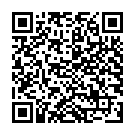|
|
|
| Module code: MST2.ELE |
|
|
4V+1U (5 hours per week) |
|
6 |
| Semester: 3 |
| Mandatory course: yes |
Language of instruction:
German |
Assessment:
Written exam 120 min.
[updated 05.10.2020]
|
MST2.ELE (P231-0038) Mechatronics and Sensor Technology, Bachelor, ASPO 01.10.2019
, semester 3, mandatory course
MST2.ELE (P231-0038) Mechatronics and Sensor Technology, Bachelor, ASPO 01.10.2020
, semester 3, mandatory course
|
75 class hours (= 56.25 clock hours) over a 15-week period.
The total student study time is 180 hours (equivalent to 6 ECTS credits).
There are therefore 123.75 hours available for class preparation and follow-up work and exam preparation.
|
Recommended prerequisites (modules):
MST2.ELT Electrical Engineering
[updated 12.04.2021]
|
Recommended as prerequisite for:
MST2.AEL Applied Electronics
MST2.DIG Digital Technology
MST2.DRS
MST2.EMS Embedded Systems
MST2.PSYS Lab Course: Systems Theory and Control Engineering
MST2.SE1
[updated 17.03.2022]
|
Module coordinator:
Prof. Dr. Kai Haake |
Lecturer: Prof. Dr. Kai Haake
[updated 01.10.2020]
|
Learning outcomes:
After successfully completing this module, students will be familiar with the properties of the most important electronic components and will be able to use them to analyze circuits. They will be able to design simple electronic circuits and dimension the components using suitable methods. Using their knowledge about typical electronic circuits, they will be able to develop solutions for tasks involving sensor and actuator technology.
[updated 05.10.2020]
|
Module content:
Introduction to semiconductor physics,
Diodes (rectifier diode, Zener diode, photodiode, light-emitting diode, optocoupler ), diode application circuits, bipolar transistors, bipolar transistor application circuits,
Field-effect transistors, field-effect transistor application circuits,
Operational amplifiers, application circuits with operational amplifiers,
Sensor application circuits
[updated 05.10.2020]
|
Teaching methods/Media:
Lecture, projector, exercises
[updated 05.10.2020]
|
Recommended or required reading:
Erwi Böhmer, Dietmar Ehrhardt, Wolfgang Oberschelp: Elemente der angewandten Elektronik, Springer Vieweg 2018
Holger Göbel: Einführung in die Halbleiter Schaltungelektronik, Springer Vieweg 2019
Günther Koß / Wolfgang Reinhold : Elektronik, Leipzig, Fachbuchverlag Leipzig
Ulrich Tietze / Christoph Schenk: Halbleiterschaltungstechnik, Berlin, Springer Verlag
Jacob Millman / Arvin Grabel: Microelectronics, New York, McGraw _ Hill Book Company
[updated 05.10.2020]
|


